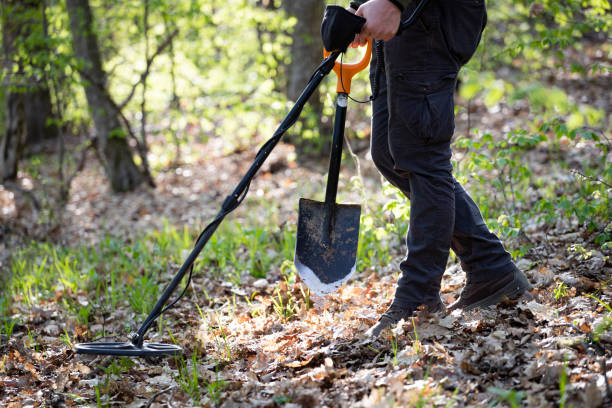
Gold detecting is a relaxing experience, full of satisfaction. Once you have started to practice such an activity, nothing can stop you to dig for gold again and again. Finding the first gold nugget is an unforgettable moment for those who are looking for this precious metal.
In the past, it was much harder to find gold than it is today, because gold detectors were difficult to use and inaccurate. Modern gold detectors are friendly and reliable; their price ranges from one hundred dollars to over five thousand dollars. You can find fine gold and small flakes, but also you might have the luck to find larger gold nuggets.
Gold detecting started as an activity generated by unrealistic romantic expectations and powerful imaginations. People were thinking about finding huge pieces of gold, such as golden eggs and mythical treasures.
Before buying a gold detector, you must learn more about this activity and its particularities. A basic machine is the right option for a beginner, especially if it has a higher operating frequency. Such a sensitive detector will help you to find even the smallest pieces of gold. Unfortunately, you can receive false alarms when the detector finds iron minerals. Most gold detectors have manual ground balance controls and require minimal adjustments to maintain proper performance.
It’s important to find out more about your gold detector, because it is your key to success. Don’t make investments if you’re not willing to allocate time to this activity. Patience and persistence are essential when it comes about gold detecting.
Keep in mind that no gold detector is suitable for all conditions. There are several factors that influence the efficiency of such a machine. A quality set of headphones can very helpful in gold detecting, because it will muffle the outside noise. Focus on volume controls and audio quality.
Pay attention when digging. In general, a louder signal doesn’t mean that you will find gold. Bits of rusty wire and horseshoes can result in false signals. Due to its significant weight, gold sinks deep into the ground, so the signal is usually soft and compact.
Scanning the ground haphazardly is a very common mistake. You must scan every square meter of the area, paying attention to the ground adjoining the diggings. Most people don’t understand why soil depth is so important. Therefore, it’s recommended to focus on areas that have been researched. Sometimes, you might need the land owners’ permission, in order to start digging for gold. Make sure you are making use of proper and responsible practices.





